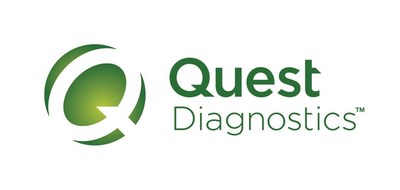Quest Career Progression: Blair Rule

From entry-level phlebotomist to Manager, Field Operations
18 years at Quest
Southwest Region - Oklahoma City, Oklahoma
Q: What did you initially want out of your career?
Blair: When I first started with Quest, I was looking for a stable job that I enjoyed doing. I worked in the restaurant industry and childcare prior to taking a role with Quest and while I loved those jobs, they weren't something I saw myself doing long-term as a career.
Q: How has what you wanted changed over the years?
Blair: About a year into my career with Quest Diagnostics, I applied for and was selected for a role in Oklahoma and transferred to DLO. At that point my goal changed from just looking for stability, to showing the people here that took a chance on me that they made a great decision, and I would not disappoint them. After 5 years as a phlebotomist, I applied for and was selected for the Patient Services Trainer position. What I wanted in that role was to help others grow, into the best phlebotomist and teammate that they could be. When I moved into a Patient Services Supervisor position, I wanted many of the same things I did as a trainer. Helping people learn, grow and develop into great teammates has been a large focus across most of my career and is something I am very passionate about. Now that I am in the Manager role, that desire to help others grow is still there, it is just on a broader scale now.
Q: Did you ever take any risks with taking on a new role and were you encouraged to move into different roles or did you move on your own?
Blair: I have always looked for opportunities to grow. As a PSR, I volunteered for every event I could be a part of to help grow my knowledge of the company and gain experience. I applied for few roles along the way that I didn't get, but looking back there was a reason. The reason was that I needed more time to master the role I was in, grow as a person and realize that my true desire was to stay in Patient Services long-term and one day become a People Leader. I have been encouraged along the way by many leaders within Quest and DLO to take every opportunity to grow and have been very appreciative of their encouragement and guidance over the years.
Q: What tools or offerings from Quest did you utilize to help you in your career progression? (tuition reimbursement, EMPower trainings, etc)
Blair: I have participated in tuition reimbursement programs to take leadership courses and work towards a degree. I have taken numerous EMpower courses to learn more about leadership and even things like how to use Excel more efficiently. Most recently, I have participated in the LQSM program to help further grow my leadership skills. This course was probably the most exciting one for me. I gained a wealth of knowledge from this course and not only am I growing as a People Leader from taking it, but I am also able to use the tools I have gained to help grow my Leadership team into stronger leaders.
Q: What advice would you give to someone who desires more from their current career?
Blair: I would encourage everyone to keep an open mind and always look for areas of opportunity to grow and improve. I would also encourage everyone that is interested in growing or doing more in their role to communicate that with their direct leader so they can work together to identify opportunities to achieve that growth. Many times, we assume that our leaders just know what our goals are, but it is up to us as individuals to make sure they do and ask for guidance on how to work towards those goals. The effort you put into your role and the ambition you have to grow is key to career progression.
Q: Which of our 5Cs do you connect with most, and why? (Customer First, Care, Collaboration, Continuous Improvement, Curiosity)
Blair: I would say that I connect with Continuous Improvement the most because I find that there is always an opportunity to improve. I constantly analyze the situations I face in my role and ask those that I work with if there is something they think I could have handled better or done differently to improve the outcome. This is something I work with my Leaders and their teams on as well. If there is an error with a patients encounter, blood draw, results, etc., it is our responsibility to investigate that error and find the root cause. Identifying the root cause allows us to train or retrain teammates so that we don't make the same mistake again. What I ask for outside of identifying root cause is to look for other factors throughout the process that could have prevented the error from happening had we done something a bit differently. It is in that reflection that we truly grow and become better at serving our teammates, patients, and communities.

